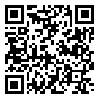Volume 29, Issue 1 (2022)
AIJH 2022, 29(1): 27-45 |
Back to browse issues page
Download citation:
BibTeX | RIS | EndNote | Medlars | ProCite | Reference Manager | RefWorks
Send citation to:



BibTeX | RIS | EndNote | Medlars | ProCite | Reference Manager | RefWorks
Send citation to:
Nasiri R A. Iraqi and Iranian Presidents' Correspondences: A Critical Discourse Analysis. AIJH 2022; 29 (1) :27-45
URL: http://aijh.modares.ac.ir/article-31-47407-en.html
URL: http://aijh.modares.ac.ir/article-31-47407-en.html
Department of Arabic Language and Literature, University of Isfahan, Iran , r.nasiri@fgn.ui.ac.ir
Abstract: (2623 Views)
About two years after the Iraq-Iran war, and at a time when Iraqi-Iranian relations were neither war nor peace, Saddam Hussein as Iraq's top political leader, wrote letters to high-ranking Iranian officials. In the correspondences, he sought to portray himself as a pacifist seeking a peaceful solution to the Iraq-Iran crisis. Iranian officials replied obsessively to all the letters. The role of these letters was very important because they were written after the war that incurred heavy human and material losses between the two countries. At that time, officials of both countries were very careful and cautious in what to say and how to say it. Probably, it could be said that the war between the two countries had gone from a physical battle to an attempt at verbal persuasion. Therefore, it is important and necessary to examine and analyze these messages through critical discourse analysis. After reviewing the correspondences, it became clear that there was a dialectical connection between their ideology, power, and texts. The more socially and politically powerful the actor is, the more opportunity he has for linguistics, and in turn, has an effect on his display of power. Officials of both countries – even perhaps unknowingly - used the discourse components to strengthen and direct their discourse; components such as: polarization, reference, lexical options, participant characteristics, implicit signification, distance, and fallacy.
Article Type: مقالات علمی پژوهشی |
Subject:
Arts and Humanities (General)
Received: 2020/11/10 | Accepted: 2021/09/13 | Published: 2022/03/10
Received: 2020/11/10 | Accepted: 2021/09/13 | Published: 2022/03/10
Send email to the article author
| Rights and permissions | |
 |
This work is licensed under a Creative Commons Attribution-NonCommercial 4.0 International License. |







